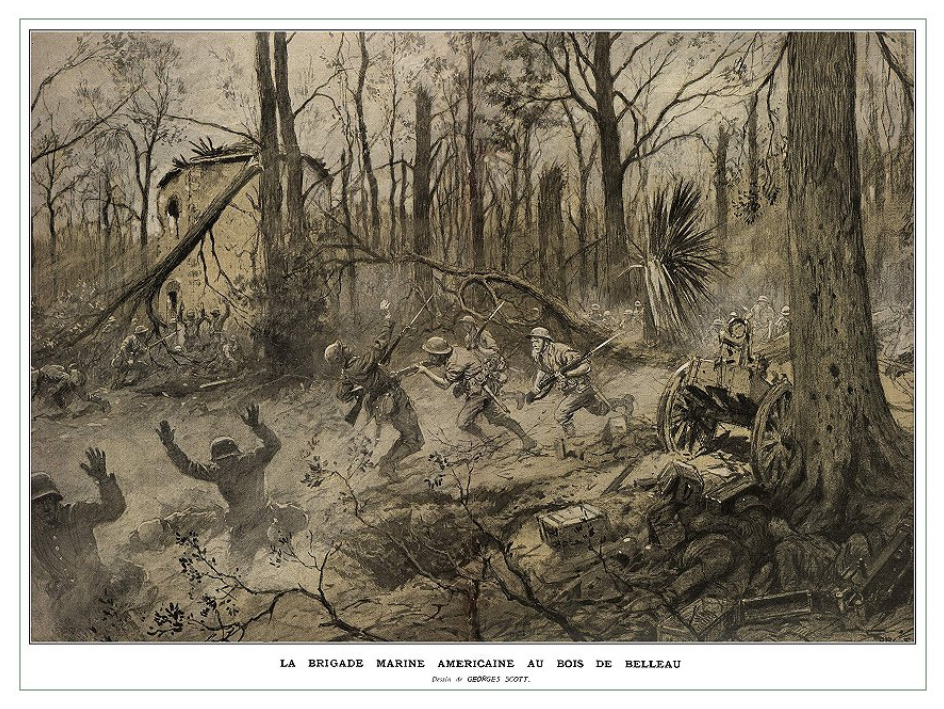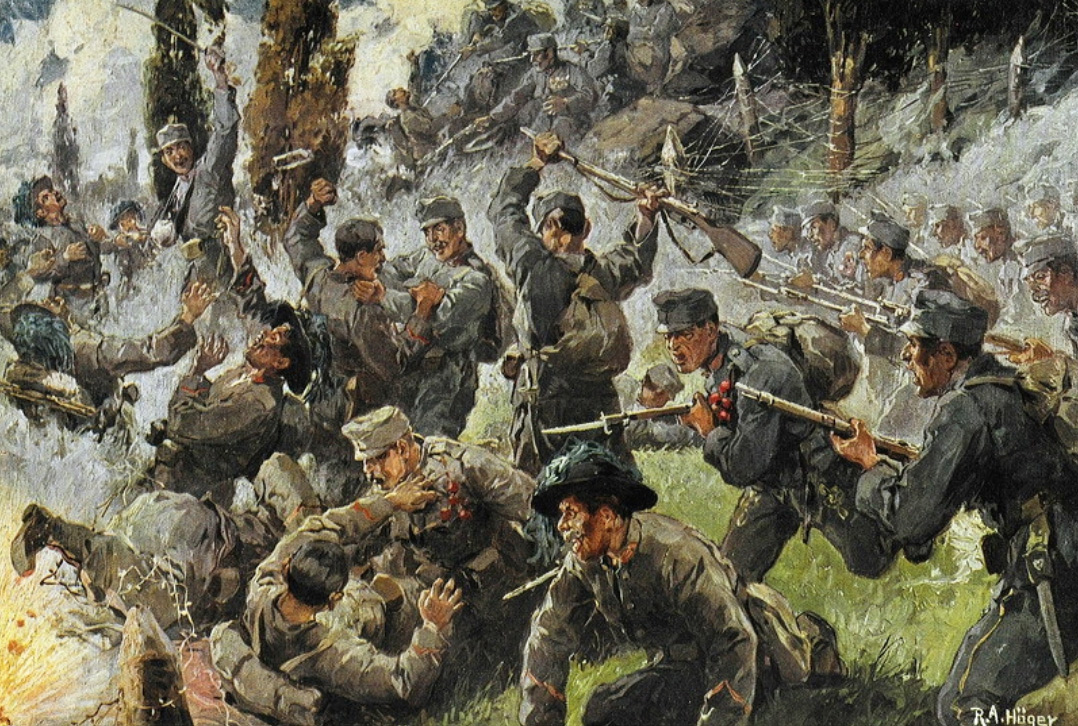World War I (1914-1918)

Samarrah Offensive
The Samarrah Offensive (March 13 – April 23, 1917) was launched by the British against the Ottomans as part of the Mesopotamian Campaign in World War I.
After Baghdad fell to the British on March 11, 1917, there were still 10,000 Ottoman Empire The Ottoman Empire, also known as the Turkish Empire, was an empire that controlled much of Southeast Europe, Western Asia, and Northern Africa between the 14th and early 20th centuries. The Ottomans ended the Byzantine Empire with the conquest of Constantinople in 1453. The Ottoman Empire's defeat and the occupation of part of its territory by the Allied Powers in the aftermath of World War I resulted in its partitioning and the loss of its Middle Eastern territories. troops north of the city, led by Khalil Pasha, who could represent a threat to Anglo-Indian forces.
The Ottoman Empire, also known as the Turkish Empire, was an empire that controlled much of Southeast Europe, Western Asia, and Northern Africa between the 14th and early 20th centuries. The Ottomans ended the Byzantine Empire with the conquest of Constantinople in 1453. The Ottoman Empire's defeat and the occupation of part of its territory by the Allied Powers in the aftermath of World War I resulted in its partitioning and the loss of its Middle Eastern territories. troops north of the city, led by Khalil Pasha, who could represent a threat to Anglo-Indian forces.
Furthermore, another 15,000 Ottomans under Ali Ihsan Bey were being driven out of Persia by the Russians Russian Empire was an empire and the final period of the Russian monarchy from 1721 to 1917, ruling across large parts of Eurasia. The rise of the Russian Empire coincided with the decline of neighbouring rival powers: the Swedish Empire, the Polish–Lithuanian Commonwealth, Qajar Iran, the Ottoman Empire, and Qing China. Russia remains the third-largest empire in history, surpassed only by the British Empire and the Mongol Empire., and were attempting at joining Khalil's forces in northern Iraq.
Russian Empire was an empire and the final period of the Russian monarchy from 1721 to 1917, ruling across large parts of Eurasia. The rise of the Russian Empire coincided with the decline of neighbouring rival powers: the Swedish Empire, the Polish–Lithuanian Commonwealth, Qajar Iran, the Ottoman Empire, and Qing China. Russia remains the third-largest empire in history, surpassed only by the British Empire and the Mongol Empire., and were attempting at joining Khalil's forces in northern Iraq.
The British The British Empire, was composed of the dominions, colonies, protectorates, mandates, and other territories ruled or administered by the United Kingdom and its predecessor states. At its height it was the largest empire in history and, for over a century, was the foremost global power. By the start of the 20th century, Germany and the United States had begun to challenge Britain's economic lead. commander, Frederick Stanley Maude, decided that, in order to avert these threats, he had to take control of the Samarrah railroad, running 130 km (81 mi) north of Baghdad.
The British Empire, was composed of the dominions, colonies, protectorates, mandates, and other territories ruled or administered by the United Kingdom and its predecessor states. At its height it was the largest empire in history and, for over a century, was the foremost global power. By the start of the 20th century, Germany and the United States had begun to challenge Britain's economic lead. commander, Frederick Stanley Maude, decided that, in order to avert these threats, he had to take control of the Samarrah railroad, running 130 km (81 mi) north of Baghdad.
Operations began on March 13, carried forth by 45,000 British troops. On March 19, they conquered Fallujah, a crucial step toward the offensive's goal. The British continued their attacks until April 23, when the town of Samarrah and its railroad fell into their hands.
Although it achieved its aims, the Samarrah offensive cost the British about 18,000 casualties, a considerable price (plus another 38,000 who were taken ill).
HISTORY

RESOURCES
This article uses material from the Wikipedia articles "World War", "World War I", and "Samarrah Offensive", which is released under the Creative Commons Attribution-Share-Alike License 3.0.
© Stories Preschool. All Rights Reserved.










